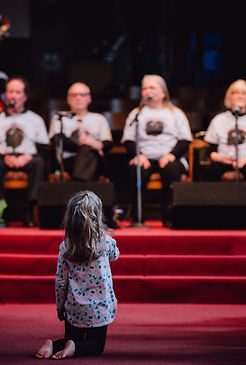The Issue
The number of Americans living with a neurocognitive disease whether it is Alzheimer's or Parkinson's is growing rapidly. It is estimated by 2050, the number of people age 65 and older with Alzheimer's dementia may grow to 13.8 million at this current pace.
THE SCALE

Every 3 seconds someone develops dementia

1 in 3 seniors dies with Alzheimer's or dementia.

10 million people worldwide have Parkinson's Disease.
WHY MUSICAL SUPPORT GROUPS?
MUSIC HAS POSITIVE EFFECTS ON THE BRAIN
Researchers have been confirming the beneficial effects of music therapy and exploring it as a viable alternative treatment in delaying the symptoms of neurodegenerative dementias. Music has been shown to synchronize the mind and playing a musical instrument is likened to a full-body work out for the brain, integrating motor, heightened sensory and auditory function, emotion, and other higher-order processes of the brain. In addition, it seems to affect lower, more primitive areas of the brain as well. The effect? Music seems to be retained in the brain differently from other sorts of cognition such as memory and language and can be accessed as a form of communication when other avenues are lost.
SOCIALIZATION
There is a stigma attached to loved ones with a neurodegenerative diagnosis and their caregivers that often leads to depression, anxiety, and feeling isolated. Research has shown that musical support groups provide a shared activity that fosters a sense of community where participants can enjoy and feel comfortable about having or caring for someone with a neurocognitive diagnosis.


INTERGENERATIONAL COMPONENT
Intergenerational support has been proven to help prevent isolation and stimulate cognitive functioning, keeping seniors integrated in society and engaged in social life to help prevent the progression of dementia. It also gives families an opportunity to connect when language fails.
.jpg)
